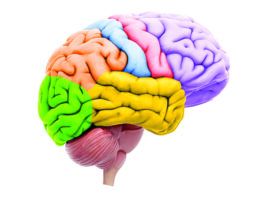Rx for Combating Chronic Conditions: Exercise
A potentially life-saving prescription for fighting heart disease, diabetes and stroke could be as close as those walking shoes gathering dust in your closet. According to an unusual new study, the benefits of exercise in reducing mortality from those leading causes of death match or even exceed the effects of prescription drugs for the same conditions. Patients with heart disease who exercised, for instance, had the same odds of surviving the condition as those given medications such as statins or antiplatelet drugs.
The Fish Story
You already know that eating fish is healthy for your heart, but new research suggests it may also be good for your head. In a study presented at a meeting of the Radiological Society of North America, older adults who ate fish at least once a week-baked or broiled, not fried-had a greater volume of gray matter in the brain in areas important in Alzheimers disease. Fish consumption was also associated with sharply lower rates of developing mild cognitive impairment or dementia.
Healthy Diet and Lifestyle Help Prevent Disability with Aging
Unhealthy behaviors such as inactivity, poor diet and smoking have long been associated with a wide range of chronic diseases and risk of death. But a new study reveals that such lifestyle factors can also affect older adults' risk of disability and loss of independence.
Drinking Cocoa Boosts Cognition and Blood Flow in the Brain
You may not have to go heavy on the cocoa to boost your brain. Previously, a special cocoa high in flavanols was shown to positively affect cognitive function in older adults with early memory decline. But now a new study conducted in older adults with hypertension and/or diabetes has found that drinking just two cups a day of cocoa for a month was associated with significant improvements in cognitive function and blood flow in the brain.
Control Your Blood Sugar to Help Protect Your Brain
You and your doctor are probably keeping an eye on your blood-sugar levels to gauge whether youre at risk for diabetes. But a new study suggests another risk that may be linked to higher blood-sugar levels (hyperglycemia), even among non-diabetics-dementia.
Q: My husband, whos been on medication for early Alzheimers, went to the emergency...
Answer : You should never stop taking any medication without checking with your own physician. As for coconut oil, its touted as a source of caprylic acid, which the body breaks down...
Q: What is your opinion of the claim that low-level laser therapy can be...
Answer : Wed be skeptical of any treatment that claims to be good for almost anything that ails you.
Q: Is there anything nutritionally you could recommend that might help someone with bipolar...
Answer : Tammy Scott, PhD, a scientist at Tufts HNRCA Nutrition and Neurocognition Laboratory, cautions against any blanket recommendation for treatment...
Being Bilingual Might Delay Alzheimers
Speaking two languages, researchers report, may help delay the effects of Alzheimers disease. Canadian scientists studied 450 patients, all with similar degrees of impairment from Alzheimers disease
Surprising Findings Challenge Thinking on Salt and Health
In a sure-to-be-controversial new study, Belgian researchers have challenged the conventional wisdom that cutting back on salt reduces the risk of developing high blood pressure and dying from cardiovascular causes






























